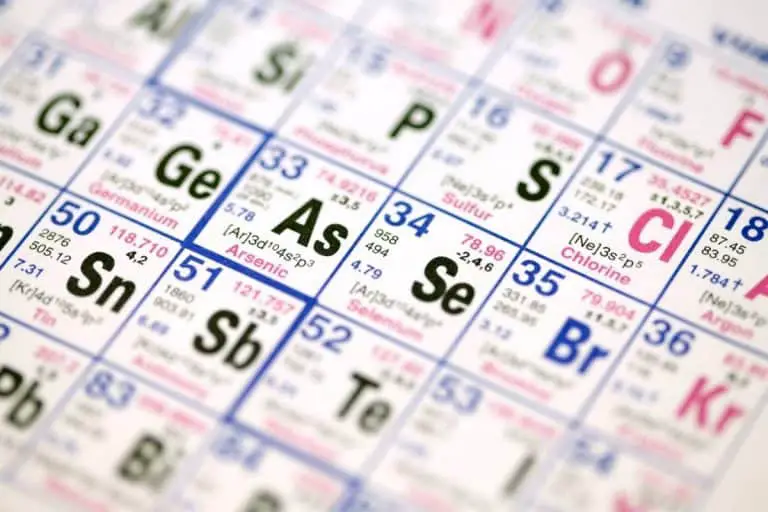Does Your College GPA Really Matter?
If you just got a bad grade and started worrying about your GPA, I feel you. Getting a D in your favorite course sucks, but it’s not the end of the world. Nonetheless, you can’t help but wonder whether your college GPA really matters.
Your college GPA does really matter, especially if you plan to continue your education. Internships are also easier to get with a good GPA. However, having a poor GPA isn’t that bad because most employers won’t ask you about your grades. Also, you need a passing grade to finish college.
This article will go over everything you need to know about your college GPA when you graduate and how you can use a good GPA to your advantage. If your GPA isn’t particularly high, I’ll give you a few handy tips on getting away with it during a job interview.

How Much Does Your College GPA Matter?
Your college GPA matters a lot because you may get academic distinctions, awards, and honors. These recognitions can help you get a good job or internship. Also, a high GPA is a requirement to get into medical or law school. Without a high GPA, you won’t be admitted into those schools.
However, when it comes to finding a new job, your college GPA matters surprisingly little. Very few employers ask about your GPA if you didn’t mention it on your resume.
If you have an exceptionally high GPA, like 3.7 or above, it would be a shame not to mention it. A high GPA not only gives you bragging rights, but it also says a lot about you.
There’s a strong correlation between a high GPA and intelligence, altruism, competence, self-discipline, deliberation, compliance, etc., as this study shows.
Now, this doesn’t necessarily mean that you’ll have those qualities if your GPA is higher. But studying hard for good grades does make you smarter. Don’t let anyone tell you otherwise.
If you want to get into law or medical school, you must have exceptionally high grades. The average GPA in these schools is between 3.7 and 3.9.
GPA also matters when you just finished your studies and are applying for a job.
However, if you have a lot of work experience, your GPA doesn’t matter at all. If you worked a couple of years part-time while in college, your GPA wouldn’t matter nearly as much.
Do Jobs Look at GPA Scores?
Jobs generally look at GPA scores only when you’re fresh out of college, and it’s your first or second job. A high GPA shows that you’re diligent and expend effort on things that matter. Even then, most employers will care more about a part-time job that you had during your studies.
It makes sense that an employer wants to know your GPA if the main point on your resume is that you hold a degree. But your GPA alone won’t be the main factor that the interviewer looks at. If they do read your resume, they’ll look at the whole thing.
Everything from your skills to your work experience matters. However, you might’ve noticed that I said “if,” not “when.” That’s because some employers will simply filter out GPAs lower than a certain threshold. It’s usually around 3.0.
In such situations, your GPA determines whether an employer even looks at your resume.
If you have a low GPA but a lot of work experience, don’t mention the GPA. Most employers won’t ask for it. At the end of the day, it’s not a big deal.
Do Employers Look at Transcripts?
Employers do look at transcripts, especially if it’s your first job. You should bring your transcript with you and show it to your employer. They’ll pay close attention to classes that are related to the job you’re applying for.
I encourage you to bring your transcript to a job interview if you just got out of college. If your college didn’t provide you with a copy, ask the college administration.
You’ll probably have to pay a fee to get it but it’s well worth the cost if you land a job. Plus, you’ll show your employer that you came prepared for the interview if they didn’t ask ahead of time.
If you have a great GPA or good grades in relevant courses, show your transcript to the employer.
Not only will they appreciate it, but they’ll also spend more time with you. And the more time you spend during the job interview, the higher your chances of getting hired.
Source: Resume Target
Can an Employer Request College Transcripts?
An employer can request college transcripts during a job interview. Employers ask for college transcripts when the candidate is young and finished their studies recently. That’s why your GPA matters after your studies. Also, good grades in courses that are related to the job are a major advantage.
I should add that asking for college transcripts isn’t common practice. If you have any relevant job experience, the employer will care way more about that than your grades.
However, it wouldn’t be out of the blue if the employer asked for a college transcript even though you graduated a decade ago. It happened to my friend when he applied for a particularly competitive job posting.
Since your grades could haunt you for the years to come, study hard for a good GPA.
A college transcript contains all classes and grades. A high score in a tough course might impress your employer.
Source: SNU Professional and Graduate Studies
Are Internships More Important Than College GPA?
Internships are more important than college GPA in most cases. Internships are a meaningful and relevant form of work experience. The hands-on experience translates to the job you’re applying for, unlike GPA. However, some employers will consider you for a position even without an internship.
One of the most common debates I hear from students is the importance of internships vs. GPA.
If you’re reading this article because you want to win an argument against your friend, I’d say stop arguing. Both of you are right.
An internship matters a lot because employers don’t like to hire people who never worked a day of their life. The work atmosphere differs from the college atmosphere significantly.
While in college, all you care about is learning, studying, attending classes, making friends, gaining experience, and so on.
But at a job, you’re out in the “real world.” You’re there to get stuff done, make money for the company, and earn your salary.
An internship gives you all the practical and valuable experience of a job, minus the salary. At best, you’ll get some form of compensation.
You can probably land a job if you did a high-quality internship even without a good GPA. Even a 4.0 GPA can’t replace an internship in your resume.
That being said, your college GPA matters too. It tells the employer everything they want to know about you. They don’t even need to talk to you.
If you have an extremely low GPA, it’s common that employers will ignore your resume when you apply for a well-paid job.
Complete an internship or get a relevant job that pays closer to minimum wage.
For example, if you want to become a financial advisor, ask every sole practitioner in town for an internship.
Don’t waste your time working at a store because that won’t help you obtain relevant experience in finance.
A combination of a high GPA and a relevant internship is perfect. You can land almost any job you apply for, provided you do well in the interview.
Should You Include Your GPA on Your Resume?
You shouldn’t include your GPA on your resume if it’s not exceptionally high or if you have enough work experience. If you finished college recently, you should include your GPA. However, don’t include your GPA if it’s been years from your graduation date.
You’ll usually get a similar response from anyone you ask. One of my professors told us that you only put your GPA on your resume if it’s 3.5 or higher.
Otherwise, hide it and never mention it during your job interview. Unless the employer asks for your GPA, of course.
If you have a high GPA and almost no work experience, it’s pretty much the only thing you can impress your employer with.
You might decide to keep your GPA on your resume even after several jobs if it’s 3.8 or higher. It just won’t be as relevant.
How To Explain Poor Grades to an Employer
If you already graduated or are about to, don’t worry about your GPA too much.
You can get a few decent jobs to gather work experience with any GPA. After all, you did finish college. You hold a degree, which isn’t something that everyone can say.
If your major is something difficult, such as architecture or engineering, your grades don’t matter much. Your employer will think that you’re extremely smart and qualified.
You must be prepared to talk about your GPA and courses during an interview. Recent graduates don’t have much else to talk about if they never had a part-time job.
If you have a few low grades, I’ll tell you what you can do when your employer asks about them. Let’s get into it!
Explain You Did Poorly in Classes You Weren’t Interested In
Some universities don’t have a good choice of classes. Even when there are hundreds of courses, it’s sometimes impossible to make the perfect list.
Inevitably, you’ll have to learn about something you don’t care about. Or maybe your professor wasn’t very good. Sometimes, you can’t help but wonder how they aren’t fired yet.
For me, it was psychology. I liked learning about psychology, and I still do. But the psychology course was tough for me and I barely got a passing grade.
So, don’t beat yourself up over it.
Explain that the course wasn’t interesting enough and you lost motivation to get a good grade. Also, shift the interviewer’s focus to a class you did well in during the same year.
That will show the employer that you focus on things that matter. You’re capable of distributing your effort and devoting it to the important stuff.
You Worked Part-Time While Enrolled
If you had a job while at college, that’s a great excuse for poor grades. It might even be a plus in some employer’s books. That’s because it shows that work is your highest priority.
Students have very little money. Fees are high, and food and rent are expensive. It’s all right that you didn’t do well in college when you had no money to get by.
You Did an Internship While Studying
Just like a job, an internship can steal a huge chunk of your studying time. You can’t be an intern and a great student at the same time.
I already mentioned before that an internship matters more than your GPA. If you finish an internship while studying, you can apply for a job earlier.
Some employers want to hire the youngest candidate on the list. An internship gives you the edge in that case.
You Didn’t Have Prior Knowledge in Your Field of Study
If your high school was easy and you passed it with flying colors, don’t be surprised when you hit a wall in college. It’s a different environment.
Classes in college are hard, and they’re even harder if you don’t even know the basic terminology. You’ll lag behind, which leads to a lower than average grade.
You Had To Take Care of a Personal Matter
If you had some difficulties while studying, that could explain the poor grades.
Maybe a family member passed away, or you had a tough breakup.
Whatever the case, mention this to your employer. They most likely won’t ask you what happened because they respect your privacy.
Be Honest (but Not Too Honest)
This relates to all the points I just talked about. Don’t lie about your GPA, and don’t make anything up.
The interviewer will know that you’re lying based on your body language. Lies have short legs.
You don’t want to make a single thing up during an interview. At the same time, don’t be too honest and say something like, “I didn’t feel like studying, so I got bad grades.”
Final Thoughts
Your college GPA matters, but it’s not the sole factor that your employer looks at. Work experience or an internship matter more.
Nonetheless, a high GPA paired with plenty of relevant work experience will increase your chances of landing a well-paid job.






